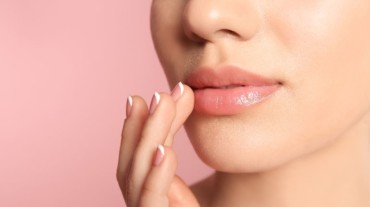
Summer is yet another reason for extravagant pool parties and swimming sessions! Swimming is a great full-body exercise but it also helps to rejuvenate the mind. However, swimming in public pools can take a toll on hair and skin and sometimes, it even causes flaky and itchy skin. For some pools, the pH level of the water isn’t checked even once during the day. In fact, it is an activity which has to be carried out every two hours to help prevent the damage to skin and hair. This makes it necessary to protect your skin and hair from problems like dull and damaged skin.
Health Shots spoke to Dr Nivedita Dadu, Renowned Dermatologist, to list some tips to protect your skin and hair from the ill effects of pool water.
“Chlorine may kill infection-causing bacteria and germs, but it only damages the upper layer of oil (sebum) that our body produces to prevent the scalp and skin from drying out. The chlorine often makes the skin flaky and itchy, and if you have sensitive skin, it will cause rashes. Always remember to quench the thirst of the body for moisturization caused due to drying effects of chlorinated water. The chlorine even sometimes aggravates skin problems like eczema,” says Dr Dadu, who is also the founder and chairman of Dr Nivedita Dadu’s Dermatology Clinic
Before going to swim, apply a swim body lotion. Many people don’t like using a body lotion before getting into the pool but if you do, it will help create a protective barrier around the skin to neutralize chlorine absorption in the skin.
Apply some oil like olive oil, coconut oil or baby oil before going to the pool, this will pose a barrier between the chlorine water and the skin.
Before going to swim, take a shower because if the skin is dry, it will quickly absorb the chlorinated water. This water will reach deeper layers and cause more damage. A quick shower will prevent the skin from absorbing a lot of chlorinated water. Take a quick shower post swimming as well to prevent the chlorinated water from drying on the skin.

Dr Dadu suggests adding Vitamin C to your regimen. Vitamin C is an antioxidant that protects the skin against UV damage. Topical Vitamin C can help to reduce sun tan by inhibiting tyrosinase which is a melanin-producing enzyme in skin.
Dehydrated skin is likely to feel dry and rough. Hydrated skin stays supple on the other hand. Sip on some water to ensure that your skin is necessarily hydrated while swimming. This also helps in purifying the skin, replenishing lost moisture, and flushing out chlorine or other toxins.

“Sunscreen will not only protect the skin from the UVA and UVB rays while you swim, but it will also form a protective layer and prevent the water from the pool from coming in direct contact with the skin. Apply a broad-spectrum sunscreen at least 15-20 minutes before stepping into the pool for maximum protection,” says Dr Dadu.
After the shower, do not rub the skin with a towel as friction may remove the skin’s moisture barrier and rubbing may also irritate the skin.
Select Topics of your interest and let us customize your feed.
PERSONALISE NOWSpending long hours in chlorine-treated water can contribute to cracked lips. Wear lip balm to prevent them from dryness and subsequent bleeding after you’re out of the pool.

Dr Dadu advises exfoliating the skin once in a fortnight can help to remove pigmented dead skin cells. This can reduce the appearance of dark and dull-looking skin. Chemical exfoliators containing hydroxy acids are a good option if you are a regular swimmer as they work by dissolving dead skin cells.
Avoid indoor swimming pools as they are not very well ventilated and trap the gases from the chemicals. This causes even more skin problems, therefore, pick a place that has an outdoor swimming pool.